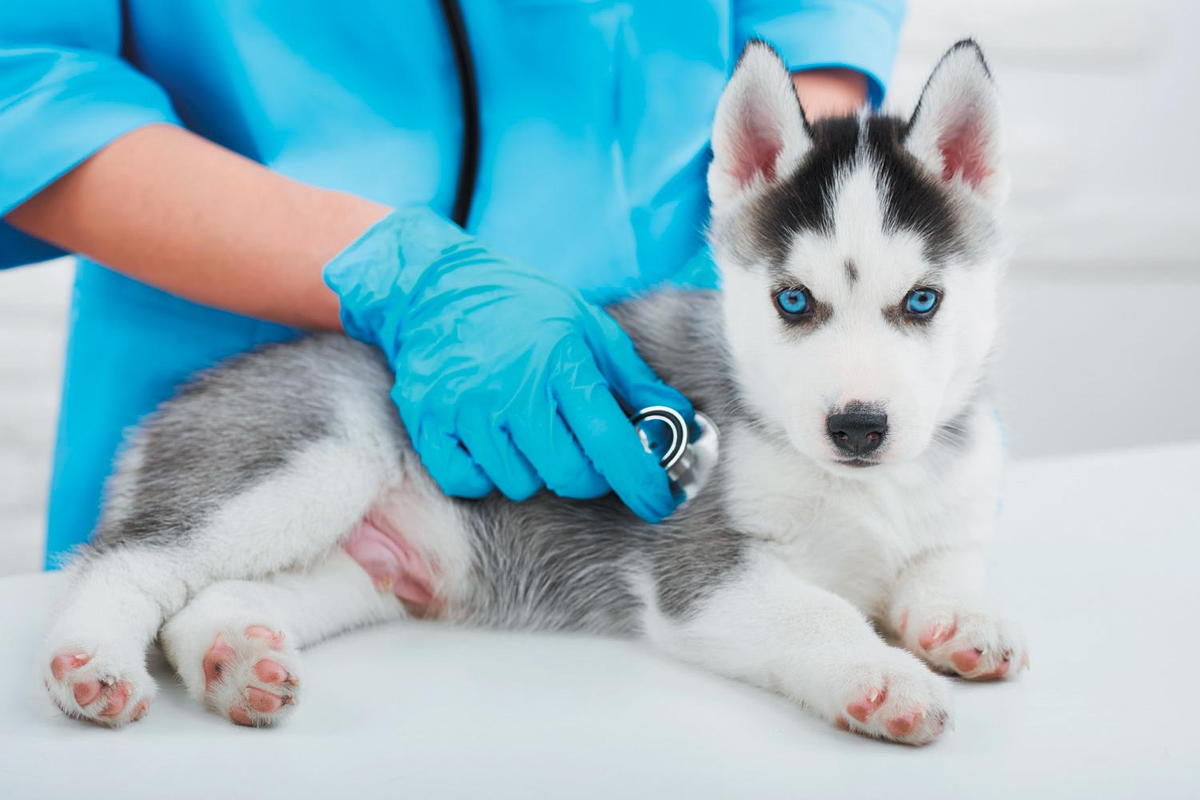
When you get a new puppy, one of the most important things to consider is your puppy's first vet visit. This one trip can lay the foundation for great lifetime health! Here's what you'll need to know about your puppy's first vet visit.
Bringing a puppy home for the first time is an exciting experience, but also one that comes with a great deal of responsibility. From the second your new friend walks their little paws through the door, you will not only need to start training your new pup, but also take them for their first visit to the veterinarian. Here we’ll walk you through what you need to know about your puppy’s first vet visit.
When To Take Your Pup For Their First Visit
Most puppies go home to their pet parents at around 6 to 8 weeks of age, and this is the perfect time for a first visit to the vet. You can push their first visit to 10 weeks of age if necessary, but the longer you wait, the more you put your pup at risk.
Always remember to bring along any paperwork if your puppy has previously visited a vet. Some breeders start their pups’ vaccinations and deworming before sending them off to their new home, and if so, your veterinarian needs to know in order to continue your puppy on the proper dosages.
What Happens At The First Vet Visit
A lot takes place during your pup’s first visit to the vet, and if you aren’t prepared, some of it can seem confusing. Let’s take a look at what you should expect.
- Physical Examination: The vet will give your new puppy a thorough once over. They will check your dog’s body, skin, coat, eyes, ears, nose, and mouth. They will also test your pup’s vision, hearing, and alertness.
- Vaccinations: Puppies become susceptible to a number of diseases and conditions when the antibodies in their mother’s milk begin to wear off at around 6 weeks of age. Fortunately, vaccinations are there to protect your pup. Four core vaccines are recommended for all puppies -- distemper, canine hepatitis, canine parvovirus, and rabies. Not only is the rabies vaccine recommended for all puppies, it is also required by law in many states.
In addition to those core vaccines, a number of non-core vaccines are available for pups
who are living in certain geographic locations or who will have a lifestyle that puts them at risk for disease. Ask your veterinarian if they recommend any non-core vaccines for your dog.
Your puppy’s vaccinations will typically start at around 6 weeks of age, and they will receive boosters every few weeks until they are finished with the shots at around 4 months old. After that, vaccination boosters will be given either annually or on a schedule set by your veterinarian.
- Fecal Exam and Deworming: Before your pup’s first visit, your vet tech or veterinarian will let you know if you should bring a sample of your dog’s stool for a fecal exam. Most puppies are born with roundworms, and will receive a deworming medication that will either be administered at home or at the vet’s office.
- Flea and Tick Prevention: Protecting your pup from fleas and ticks is incredibly important, not only because these pests are annoying, but also because they can carry disease. Many preventive products can be started on puppies as young as 8 weeks old. Ask your veterinarian to recommend a medication, topical treatment, or collar that will properly protect your new pal.
- Microchipping: A microchip is like an ID tag that lives inside of your dog’s body. It is about the size of a grain of rice and contains all of your pet’s information. If your pet is ever lost and returned to a shelter or vet’s office, the chip can be scanned and your pet safely returned to you. It’s great technology, and many veterinarians strongly recommend it. The cost is typically low and the procedure is simple -- the chip is injected between your dog’s shoulder blades. However, even if you do decide to have your pup microchipped, they should still wear an ID tag.
Remember -- never hesitate to ask questions, and try to stay calm and positive when you head into to the vet’s office for the first time -- your pup will notice, and it will put them at ease.
